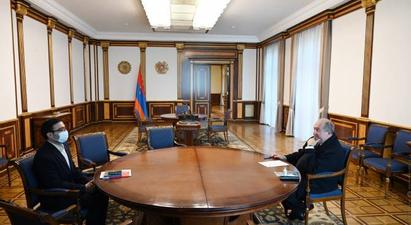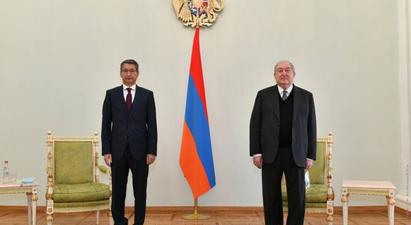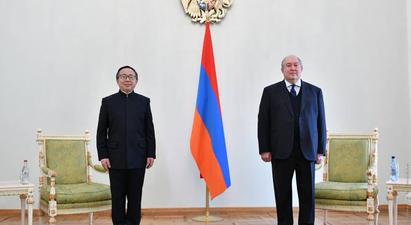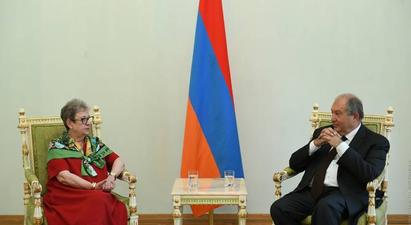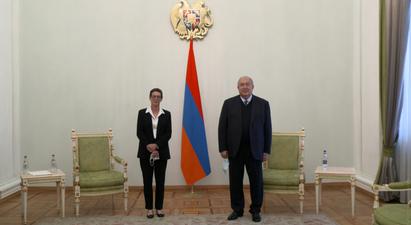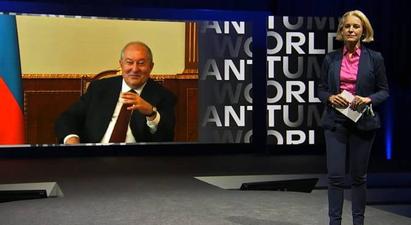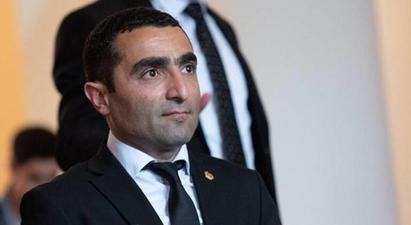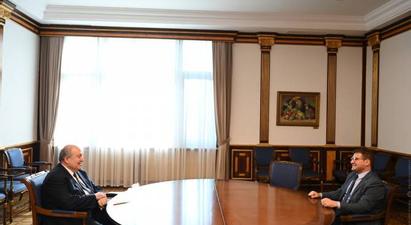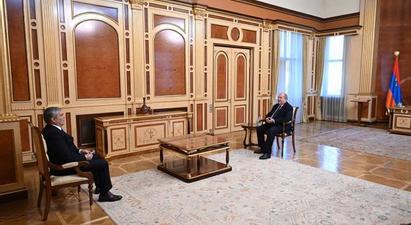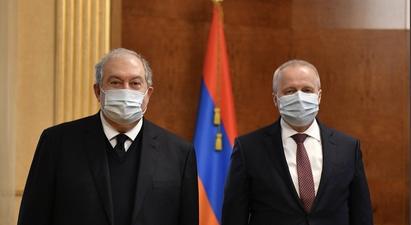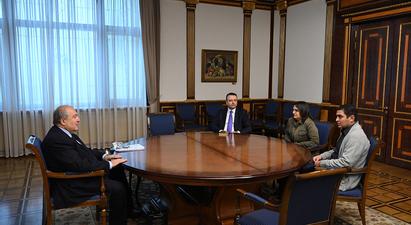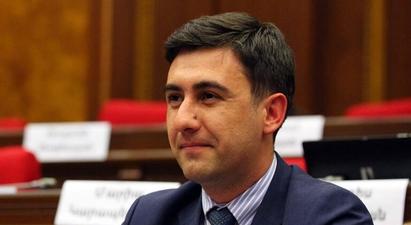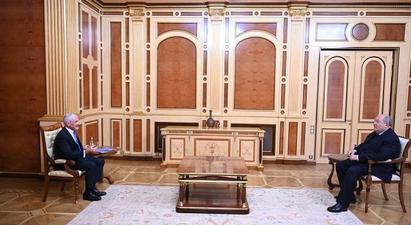Արմեն Սարգսյան
ՀՀ չորրորդ նախագահն է։
Ծնվել է 1953թ. հունիսի 23-ին, Երևան քաղաքում:
1970թ. ավարտել է Երևանի թիվ 114 միջնակարգ դպրոցը: 1976թ. ավարտել է Երևանի պետական համալսարանի ֆիզիկայի ֆակուլտետը: 1978թ. ավարտել է ԵՊՀ տեսական ֆիզիկայի ամբիոնի ասպիրանտուրան: Ֆիզիկամաթեմատիկական գիտությունների թեկնածու է, դոցենտ:
1991-1996թթ․ զբաղեցրել է Միացյալ Թագավորությունում Հայաստանի Հանրապետության գործերի ժամանակավոր հավատարմատարի, այնուհետև ՀՀ դեսպանի պաշտոնները:
1992-1996թթ․ եղել է Եվրոպայի ավագ դեսպան, ՀՀ դեսպանը Եվրոպական Միությունում, Բելգիայում, Նիդերլանդներում, Լյուքսեմբուրգում, Սուրբ Աթոռում, ԵՄ-ում ՀՀ առաքելության ղեկավարը:
1996-1997թթ․ զբաղեցրել է Հայաստանի Հանրապետության վարչապետի պաշտոնը:
1998-2000թթ․ վերանշանակվել է ՄԹ-ում և, համատեղության կարգով, Վատիկանում Հայաստանի Հանրապետության դեսպան:
2000-2013 թվականներին եղել է Վերակառուցման և զարգացման եվրոպական բանկի ավագ խորհրդական, Eurasia House International –ի հիմնադիր նախագահ, Քեմբրիջի համալսարանի Եվրասիական կենտրոնի հիմնադիր և տնօրեն, Եվրասիական ամենամյա մեդիա ֆորումի հիմնադիր, Քեմբրիջի համալսարանի բիզնես դպրոցի Տարեկան միջազգային կոնֆերանսի հիմնադիր, Դավոսի համաշխարհային տնտեսական ֆորումի (World Economic Forum) էներգետիկ անվտանգության գլոբալ խորհրդի նախագահ, Արևելք-Արևմուտք ինստիտուտի (East- West Institute) պատվավոր փոխնախագահ, Եվրաատլանտյան անվտանգության նախաձեռնության (Euro‐Atlantic Security Initiative) հանձնաժողովի համանախագահ (Էներգետիկ անվտանգության նախագահ), Բրիտանահայկական համակուսակցական խորհրդարանական խմբի (British-Armenian All-Party Parliamentary Group) հիմնադիր նախագահ, Համաշխարհային առաջնորդության հիմնադրամի (Global Leadership Foundation) խորհրդի անդամ, ԱՄՆ Հարվարդի համալսարանի Քենեդու կառավարման դպրոցի (Kennedy School of Government, Harvard University) խորհրդի անդամ, Չիկագոյի համալսարանի հանրային քաղաքականության ուսումնասիրությունների Հարրիսի դպրոցի (Harris School of Public Policy Studies, University of Chicago) խորհրդի անդամ, Ջոն Սմիթ Հիմնադրամի (John Smith Trust) հոգաբարձու, Հայ բարեգործական ընդհանուր միության խորհրդի անդամ, «Երեւան, իմ սեր» բարեգործական հիմնադրամի հիմնադիր եւ այլն:
2000-2013թթ․ Alcatel, Lucent, Telefonica, British Petrolium, Merrill Lynch-Bank of America և այլ միջազգային ընկերությունների գլխավոր խորհրդատու:
2013-2018թթ. Միացյալ Թագավորությունում Հայաստանի Հանրապետության դեսպան:
2018թ. ապրիլի 9-ին ստանձնել է Հայաստանի Հանրապետության նախագահի պաշտոնը:
Հրաժարական է ներկայացրել 2022թ. հունվարի 21-ին:
